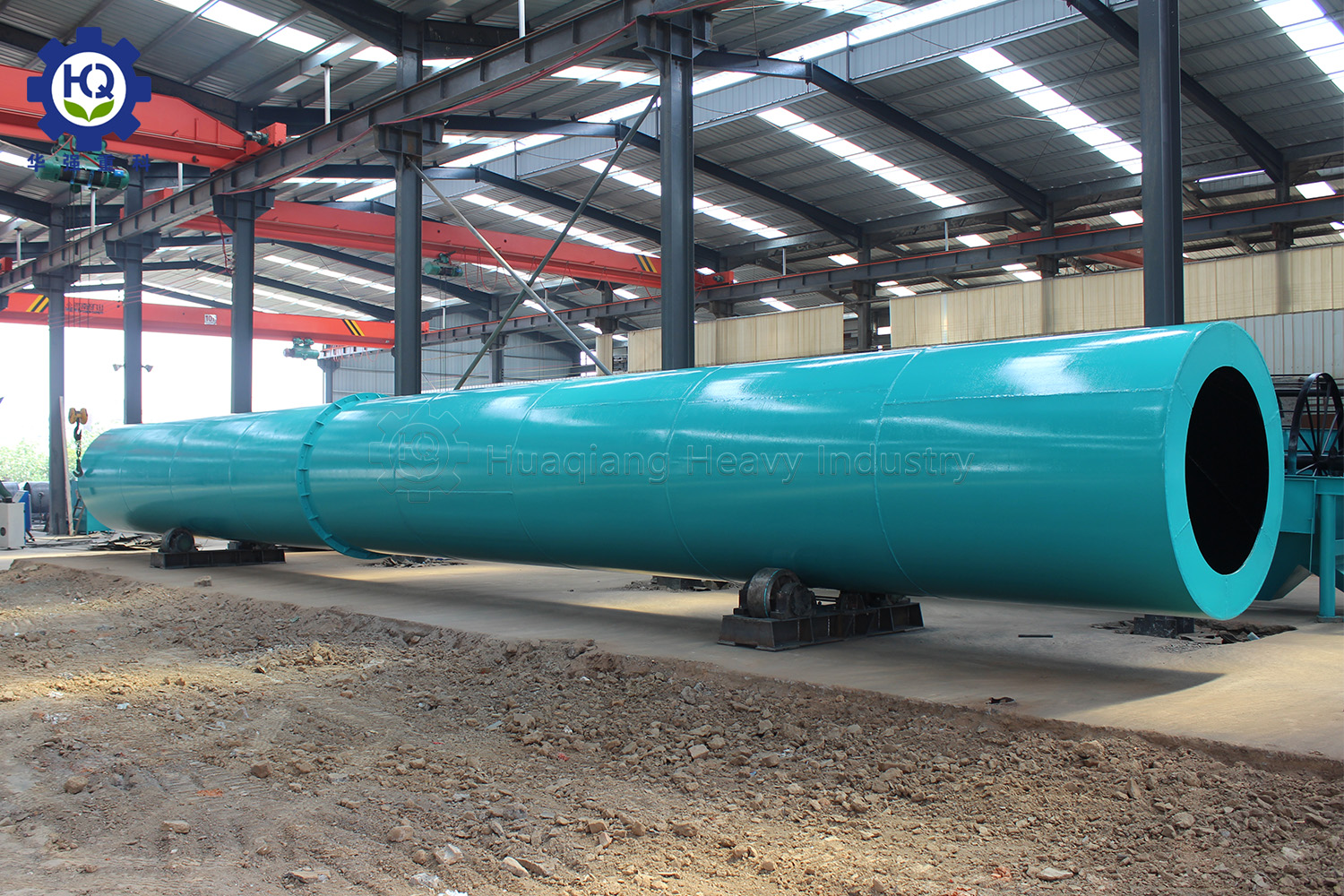To process cow dung into organic fertilizer, a cow dung dehydrator needs to be used to dehydrate it, otherwise the humidity will be too high and affect the granulation of organic fertilizer. Among them, the
rotary dryer is a common dehydrator. Is it good to use it to process cow dung?
After the raw materials of the
rotary dryer are conveyed to the dryer by the conveyor, they enter the cylinder from the feed box and are pushed backward by the spiral scraper. Because the dryer is placed at an angle, the material moves to the rear end under the action of gravity and rotation on the one hand, and on the other hand, the material is repeatedly picked up by the scraper, brought to the upper end and then continuously scattered down, so that the material forms a uniform curtain in the cylinder, fully exchanging heat with the hot air flow in the cylinder. Due to the repeated scattering of the material, the moisture contained is gradually dried, and the heat source of the dryer comes from the combustion device.
Rotary dryers are often used as cow dung dehydrators, and occupy a large market share with their unique advantages.
Rotary dryer is suitable for waste materials with high water content and high viscosity, such as beer grains, starch grains, rice bran grains; various residue materials, such as bean dregs, cassava residues, bean dregs, sweet potato residues, potato residues, sugar residues, fruit residues, sauce residues, as well as livestock and poultry manure, mud peat and other high-humidity materials. It is more suitable for livestock and poultry manure treatment in large, medium and small farms, livestock and poultry manure production of organic fertilizer, compound fertilizer, organic-inorganic compound fertilizer, sludge, grain, food, biogas residue, medicine residue and other high-humidity materials.
